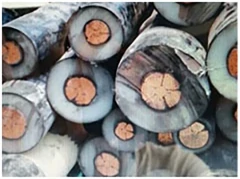
10 月 . 06, 2024 14:50 Back to list
Cable Granulation An Innovative Approach to Recycling and Sustainability
In today's world, where sustainability and environmental consciousness are more critical than ever, the recycling of materials has become a focal point for both industry and domestic practices. Among the myriad of materials needing recycling, copper and aluminum cables play a significant role due to their wide use in electrical systems, construction, and various industries. One of the most effective methods for recycling these cables is through a process known as cable granulation.
What is Cable Granulation?
Cable granulation is a recycling process that involves the mechanical treatment of scrap electrical cables to separate the valuable metals (copper or aluminum) from the insulating materials (like PVC, polyethylene, or rubber). This process not only enables the recovery of valuable metals but also ensures the environmentally friendly disposal of leftover materials. The granulation process typically involves several stages, including shredding, granulating, and separating the materials using various techniques such as air classification and magnetic separation.
The Process of Cable Granulation
1. Collection and Preparation The first step in cable granulation is the collection of scrap cables. These cables may come from various sources, including construction sites, electrical contractors, and general waste recycling programs. Once collected, the cables are sorted based on type and metal content to increase efficiency in the recycling process.
2. Shredding The sorted cables are then fed into industrial shredders, which cut the cables into smaller pieces. This mechanical action makes it easier to separate the metals from their insulating materials in the following steps.
3. Granulation After shredding, the material is further processed through granulators that produce finer granules. During this stage, the rubber or plastic insulation is broken down into smaller pieces, preparing it for efficient separation.

4. Separation This crucial step employs various techniques to separate the metals from non-metallic materials. Techniques such as air classification use airflow to differentiate between the lighter insulation materials and the heavier metallic granules. Electromagnetic separators can also be used to extract ferrous metals that might have been mistakenly included in the batch.
5. Processing and Recycling After successful separation, the recovered copper or aluminum granules can be sold to processing companies, where they are melted down and manufactured into new products. The insulation materials are also processed, usually for use in producing alternative fuels or as feedstock for manufacturing recycled plastics.
Environmental and Economic Benefits
The cable granulation process contributes significantly to environmental sustainability. By recycling cables, the need for mining new metals is reduced, ultimately conserving natural resources and decreasing ecological disruption. Furthermore, recycling through cable granulation generates less waste, as the residual materials from the process can be repurposed rather than sent to landfills.
Economically, cable granulation is beneficial as it creates jobs in the recycling industry and promotes a circular economy. By turning waste into reusable materials, industries can save on material costs and reduce supply chain vulnerabilities associated with raw material sourcing.
Conclusion
Cable granulation is a prime example of how innovation in recycling processes can lead to significant environmental and economic advantages. As we continue to grapple with the challenges posed by waste and resource depletion, cable granulation offers a feasible, efficient, and responsible method for handling one of the many materials that clutter our landfills. By embracing such processes, we not only pave the way for a sustainable future but also cultivate a mindset that values resourcefulness and respect for our planet. As the recycling industry continues to evolve, cable granulation stands out as a vital practice that underscores the importance of responsible consumption and waste management in our modern society.
Latest news
Unveiling the Power of Eddy Current Separator
NewsSep.25,2024
Transform Your Home Recyclin:home metal shredder
NewsSep.25,2024
The Future of Waste Management with Recycling Line Picker
NewsSep.25,2024
The Benefits of a Metal Recycling Plant
NewsSep.25,2024
Revolutionize Material Separation with Onwang Technology
NewsSep.25,2024
Innovative Waste Management: Unveiling the MSW Sorting Plant
NewsSep.25,2024